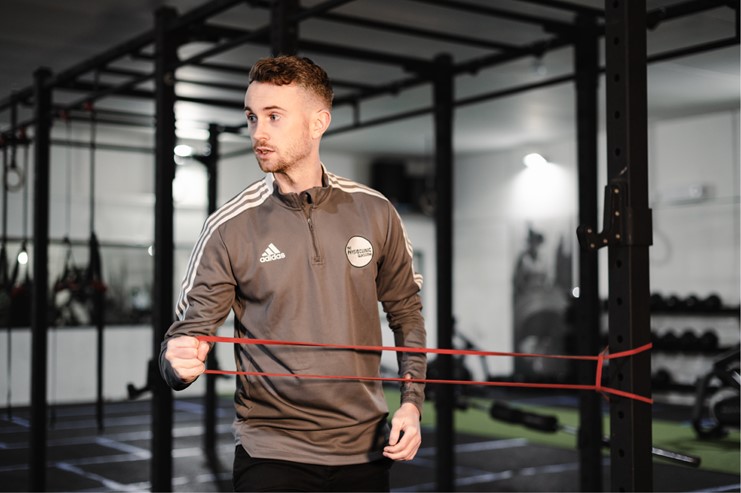Identifying and conquering your shoulder pain
Published: 02 June 2023

Shoulder pain can be a debilitating condition that affects people of all ages and backgrounds. Whether you're an athlete, an office worker, or a stay-at-home parent, shoulder pain can significantly impact your quality of life.
At our physiotherapy clinic, we understand the complexity of shoulder pain and the importance of evidence-based practices in providing effective treatment. Here is the most common types of shoulder pain that we see and how we aim to treat them to keep you active:
1. Rotator Cuff Tendinopathy: Rotator cuff tendinopathy refers to the degeneration or inflammation of the tendons surrounding the shoulder joint. Our physiotherapy approach for rotator cuff tendinopathy includes a combination of exercises, manual therapy, and progressive loading programs. These interventions are designed to reduce pain, improve tendon health, and restore optimal shoulder function.
2. Shoulder Impingement: Shoulder impingement occurs when the tendons and bursa in the shoulder become irritated, leading to pain and limited mobility. Our clinic offers tailored exercise programs to improve scapular control, muscle balance, and alleviate impingement symptoms. By addressing the underlying causes, we aim to restore pain-free movement and enhance shoulder mechanics.

3. Frozen Shoulder (Adhesive Capsulitis): Frozen shoulder is characterized by pain, stiffness, and restricted shoulder movement. Early intervention is crucial in managing this condition effectively. At our clinic, we utilize physiotherapeutic interventions such as joint mobilizations, stretching exercises, and range of motion exercises. Through these treatments, we strive to reduce pain, improve flexibility, and restore normal shoulder function.
4. Shoulder Instability: Shoulder instability refers to excessive movement or looseness of the shoulder joint, often leading to recurrent dislocations or subluxations. Our physiotherapy treatments for shoulder instability focus on targeted strengthening exercises for the rotator cuff and shoulder stabilizing muscles. By improving muscle strength and joint stability, we aim to reduce the risk of dislocations and enhance overall shoulder function.
Conclusion: Shoulder pain can be effectively managed with evidence-based treatments tailored to your specific condition. Through a combination of exercises, manual therapy, and targeted interventions, we aim to alleviate pain, improve function, and enhance your overall quality of life. Don't let shoulder pain hold you back—schedule an appointment with our clinic and take the first step towards a pain-free and functional shoulder.
Arran and Robb
The Physio Clinic Glasgow